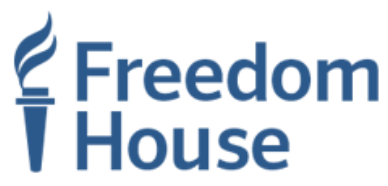FOR IMMEDIATE RELEASE

Washington - January 15, 2020 — In response to the enactment of new laws that drastically limit the rights of refugees and asylum seekers in South Africa—traditionally a place of refuge for Africans from throughout the continent—Freedom House issued the following statement:
“The South African government should immediately revise the Refugees Amendment Act to safeguard the rights of refugees and asylum seekers, and ensure that the Act conforms to South Africa’s constitution and international law,” said Jon Temin, director of Africa programs at Freedom House.
Paul Graham, project director for Freedom House Southern Africa, noted his concern with the strict procedural requirements in the Act: “The requirements mean that many individuals in the country who need and deserve refugee protection could lose or never obtain it. Those affected may lose the freedom to earn livelihoods, express their opinions, and engage in political processes, and could be sent back to countries where they fear persecution or violence. While South Africa was once lauded for its advanced refugee policy, implementation of that policy has long fallen short of international standards. The new regulations reveal a growing, and overt, priority for exclusion rather than protection.”
“Globally, the treatment of refugees is trending toward narrowing refugee protection and restricting refugee rights,” said Temin. “Around the world in places as diverse as Australia, Bangladesh, Hungary, Indonesia, and the United States, refugees and asylum seekers have faced closed borders, detention, and expulsion, as well as restrictions on movement, the right to work, and to receive education. Rather than following these examples, South Africa should demonstrate leadership by adhering to international standards and extending protection to the most vulnerable in its region. South Africa’s seat on the UN Security Council and upcoming leadership of the African Union reinforce its responsibility to defend the human rights of refugees.”
Background:
On December 27, 2019, South Africa’s Department of Home Affairs published finalized refugee regulations that enable implementation of the Refugees Amendment Act, effective January 1, 2020. The Refugees Amendment Act drastically limits the rights of refugees and asylum seekers in South Africa, traditionally a place of refuge for Africans from throughout the continent.
Under the new regulations, refugees can lose their refugee status for voting or participating in any political activity in their countries of origin. This effectively prevents refugees from protesting against abuses in the countries from which they have fled. However, South Africa’s bill of rights specifically confers the rights to opinion, expression, and association upon everyone. Critics of the new regulation have pointed out that South African refugees and exiles who organized themselves from abroad were crucial to the antiapartheid movement. By seeking to limit political activity by refugees in their home countries, the South African government is denying the same rights that supported the push for human rights and democracy in South Africa.
The new regulations also include other grounds for the loss of refugee status, including if a refugee seeks any consular services from their country of origin. This could mean that an act as simple as requesting a birth certificate at a consulate could trigger a withdrawal of refugee status and possible deportation. These rules thus could violate the right of nonrefoulement, an established principle under international law which holds that a refugee should not be returned to a country where their life or freedom would be threatened.
The new refugee regulations also tighten the administrative rules for applying for asylum. They create strict procedural limitations in the asylum process, including eligibility stipulations related to how an asylum seeker entered South Africa and how quickly they present themselves to a Refugee Reception Office to apply for asylum. The regulations also limit asylum seekers’ right to work and study in South Africa, which would undermine their ability to support themselves and violate their right to dignity under the constitution.
Civil society and refugee assistance organizations in South Africa, including the Scalabrini Centre of Cape Town, are expressing grave concern at the new law. With a backlog in asylum applications and recent waves of xenophobic violence, the situation of asylum seekers and refugees in South Africa was already precarious. By taking away basic rights and making asylum more difficult to obtain and keep, the new refugee law places asylum seekers and refugees in an even more
vulnerable situation.
South Africa is rated Free in Freedom in the World 2019 and Free in Freedom on the Net 2019.
|